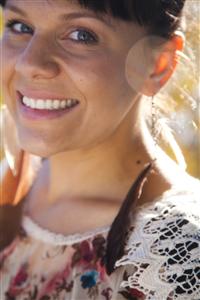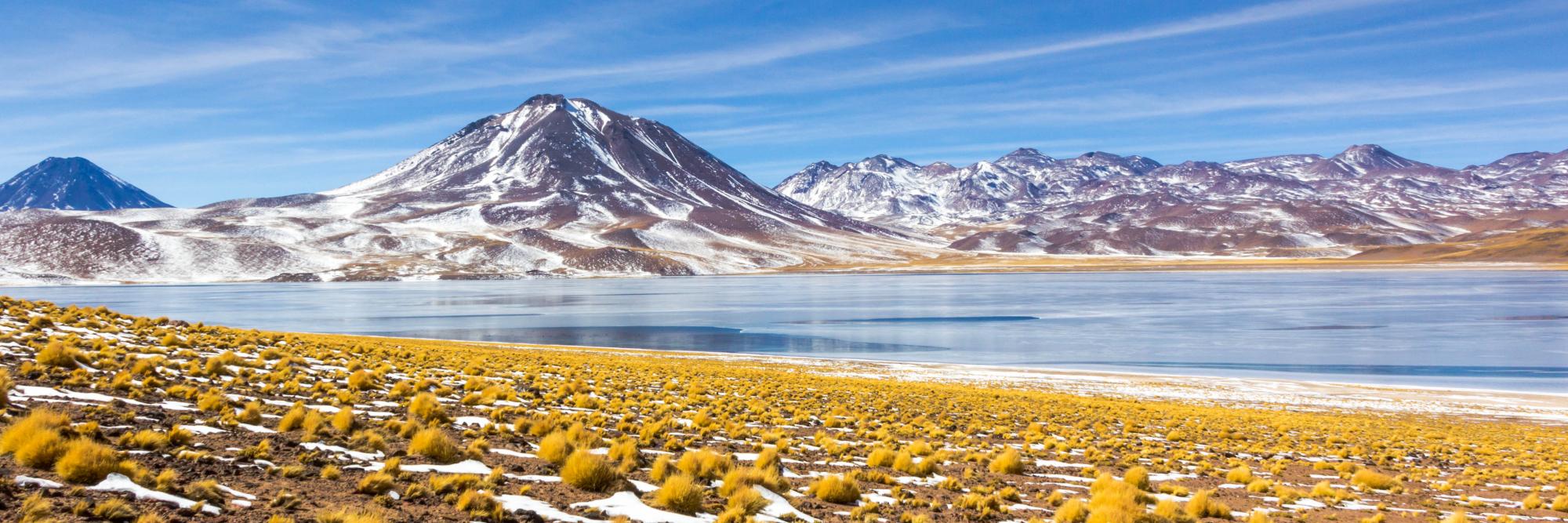Sarai is an American artist who is married to a Chilean man and living in Puento Alto, at the foot of the Andes, with their five children. Sarai absolutely loves Chile, is excited about the future, and believes she has found her heart and home here.
Read more about Chile in the Expat Arrivals Chile country guide, or read more about expat experiences in Chile.
 About you
About you
Q: Where are you originally from?
A: I was born and grew up in Wisconsin and Michigan, and after I turned 18, I moved out to Utah, United States.
Q: Where are you living now?
A: I am living in Puente Alto, Chile, in the housing development of Hacienda El Penon (The foot of The Andes Mountains). In the future, we may be planning on moving to a flat in the neighbourhood of Bellas Artes in Santiago.
Q: How long have you lived here?
A: I have lived here for six months.
Q: Did you move with a spouse/children?
A: I have five children and a husband whom is a native Chilean.
Q: Why did you move; what do you do?
A: We moved because we wanted our family to know both cultures and grow up near their family in Chile as well.
About Puento Alto
Q: What do you enjoy most about Puente Alto, how’s the quality of life?
A: I enjoy the people the most, the hustle and bustle, the affection of the kiss rather than the handshake, being served and enjoying life around the table with people you love.
Q: Any negatives? What do you miss most about home?
A: I would have to say that the negatives I have encountered are the lack of opportunities and education available to people who are born into poverty, and also some native Chileans tend to have a slightly closed world view. The other is moving here and easily obtaining a job due to a little word called, “pituto” which usually means connections, it’s hard to get a job without a pituto because jobs usually go to friends, family, and acquaintances first. The things that I miss most about home are wonderfully diverse restaurants, sales on name brand clothing and paying with cash.
Q: Is Puento Alto safe?
A: I would say that is usually up to you, you must be knowledgeable and careful when you travel in Chile. I ride public transportation and walk Puente Alto daily and have not had any problems, but Puente is not the safest of all cities in Chile.
Q: How would you rate the public transport in Puento Alto? Do you need to own a car, or is the public transport sufficient for getting around? What are the different options?
If you are very Westernized, you may want a vehicle; our family is comfortable using public transportation. Travelling via bus and Metro is very economical and avoids most of Santiago’s traffic, on the downside, if you live far away from amenities, it may be quite a trek to pick up some bread to take with your evening tea. Another thing to take into consideration is your children’s schooling. If you take your children to school via the Metro, it can be an annoyance over convenience, and you could end up on some not very safe buses.
About living in Chile
Q: Which are the best places or suburbs to live as an expat?
A: I would have to say Las Condes, or Providencia, even in Cajon Del Maipo; it really depends on what kind of person you are or what your family prefers. I am a local fibre artist, so I would prefer to live in a more bohemian area. I am a people watcher and I love to always understand life as it works indigenously; I am not necessarily looking for a more Westernized area.
Q: How do you rate the standard of accommodation in Chile?
A: Again that depends on who you are, we live in a very nice area, but casa islada usually means “isolated house” and I’m not really into being isolated. But if city life bothers you, you may want to consider another option. Another thing to consider is that homes here are usually built without central heat or air-conditioning and usually have concrete walls and can get quite uncomfortable in the heat of the summer and cold of the winter.
Q: What’s the cost of living compared to home? What is cheap or expensive in particular?
A: I think it is expensive if you compare the income here with necessary expenses. An average Chilean income is usually low and the prices of clothing, personal care items, cars, etc. is usually the same or if not higher than in the US, but on the upside homes are usually priced low. In my experience, Chileans live in cuotas (payments) for everything, including fast food meals. If you are moving here from the US, don’t get overexcited about the prices you see in the Feria because you must consider the cost of living compared to income.
Q: What are the locals like; do you mix mainly with other expats?
A: I mix mainly with Chileans, but I know two expat families living here that we socialise with as well. My family lives here, so it is difficult to find a cultural balance at times, but we love life here even if it is difficult at times.
Q: Was it easy meeting people and making friends?
A: My personality makes it easy for me. If you are an introvert or have difficulty communicating in Spanish, you may have a harder time.
About working in Chile
Q: Did you have a problem getting a work visa/permit for Chile?
A: No, not at all, due to the fact that my husband and children all have citizenship.
Q: What’s the economic climate like in Chile, is there plenty of work?
A: It’s difficult if you don’t have “pitutos” or already have a job in Chile, you need to have some way to get your way in culturally unless you already have a job here. Most people will hire friends or acquaintances before hiring an outsider.
Q: How does the work culture differ from home?
A: People usually work a 45-hour workweek; you work very hard here and take an extra long break in the afternoon to compensate.
Q: Did a relocation company help you with your move?
A: No, we sold what we had in the US and bought everything new here; we already owned a home that we bought about five years ago.
Family and children
Q: Did your spouse or partner have problems adjusting to their new home?
A: Yes, my children miss their friends but are adjusting nicely and learning a lot about life given that they are very Americanized. My husband was also outside of Chile so long that he forgot about the cultural nuances.
Q: Did your children settle in easily?
A: Not very easily, they miss certain things about home, such as going shopping ALL the time, but they are now adjusting quite nicely.
Q: What are the schools like, any particular suggestions?
A: As I have found out, the education here is not the best and public schools are riddled with drugs and alcohol abuse. School by far has been our biggest battle; we put our kids in a liberal arts school, and they fell behind because the education was redundant. Our kids sat in school until 4:20pm each day and learned virtually nothing but bad behaviour. Expats must consider education before they come to Chile. A private school is usually the best option, but it is expensive and there is no guarantee on the actual “learning” side of it.
Q: How would you rate the healthcare in Chile?
A: I have not had much experience with it yet as nobody has been sick, and we are self-employed, so I will get back to you on that as I learn more.
And finally…
Q: Is there any other advice you like to offer new expat arrivals?
A: Yes, if you are an expat moving to Chile, learn as much about the country as you can before moving here, but if you are adventurous, just jump in because you will never grow in life without doing things that you have never done before, and I LOVE the country of Chile and have no plans to look back; I have found my heart and home here.
~ Interviewed July 2012



